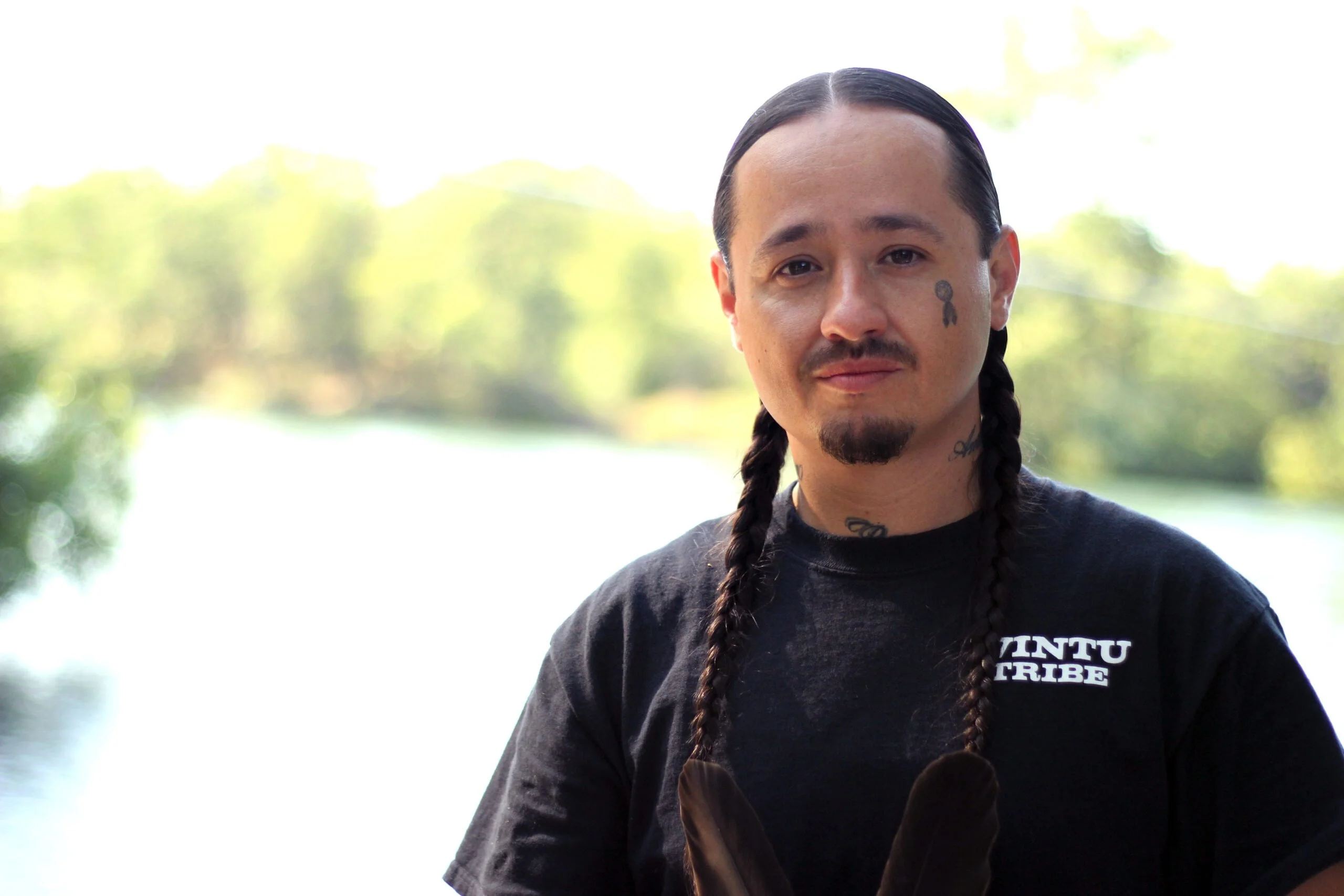
“I was born in Redding, and my family’s ancestral village is Turtle Bay. My mother is Mexican and Wintu. My father is mixed European blood. It was tough as a kid because I didn’t fit in with the white people, with the Mexicans or with the Indians. I spent my whole life fighting, and my identity struggle led to problems with drinking and depression. It caused me to take my anger out on others, and I pray for forgiveness for the people I hurt.”
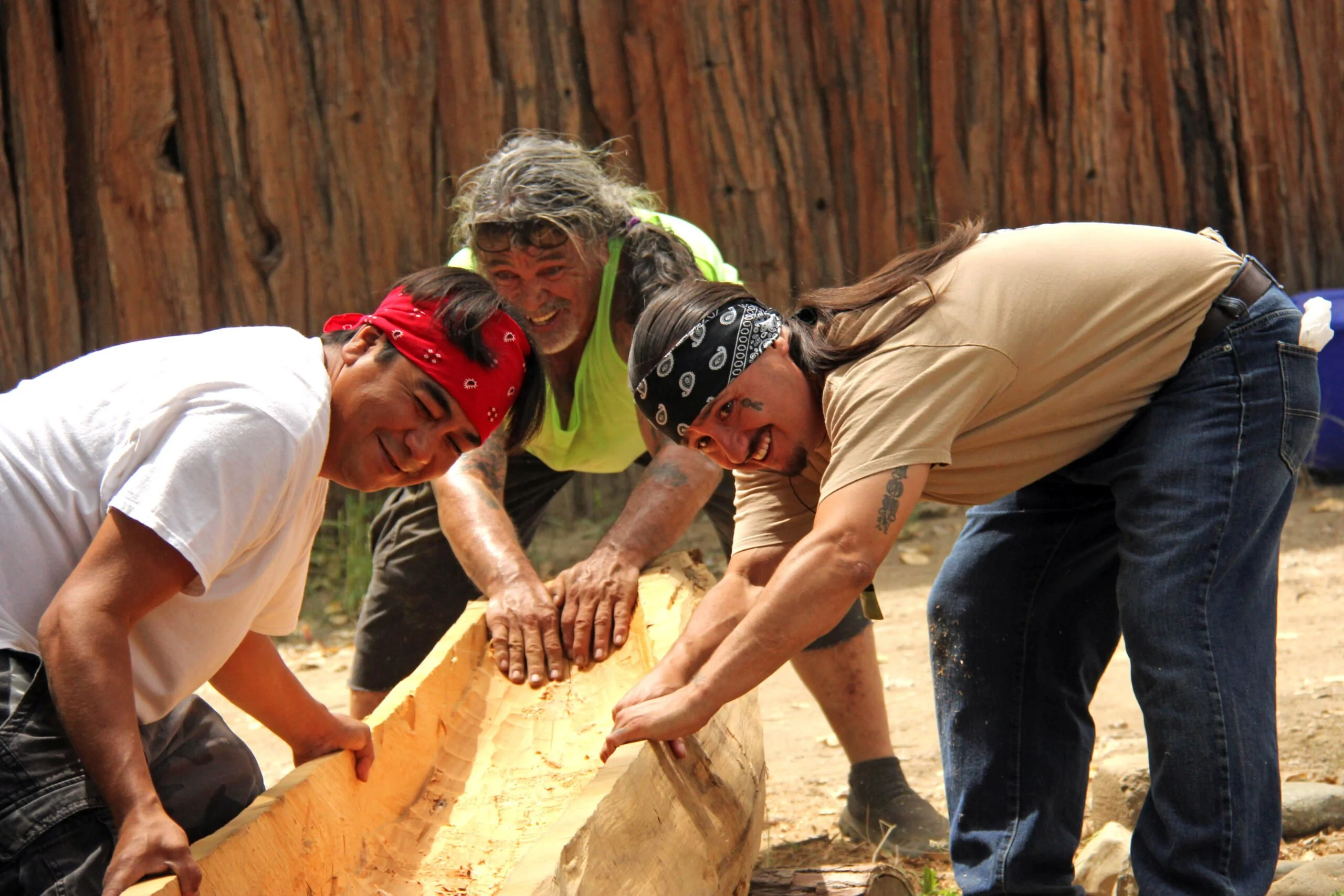
“Growing up, my grandma would tell me to be proud about being Wintu, but I thought I was the last one, like the last Mohican, because I didn’t know any other relatives in Palo Alto. When I moved back here and worked as security at my first ceremony on the McCloud River, I knew I wanted to fight for my people and traditions, not for a gang color.”
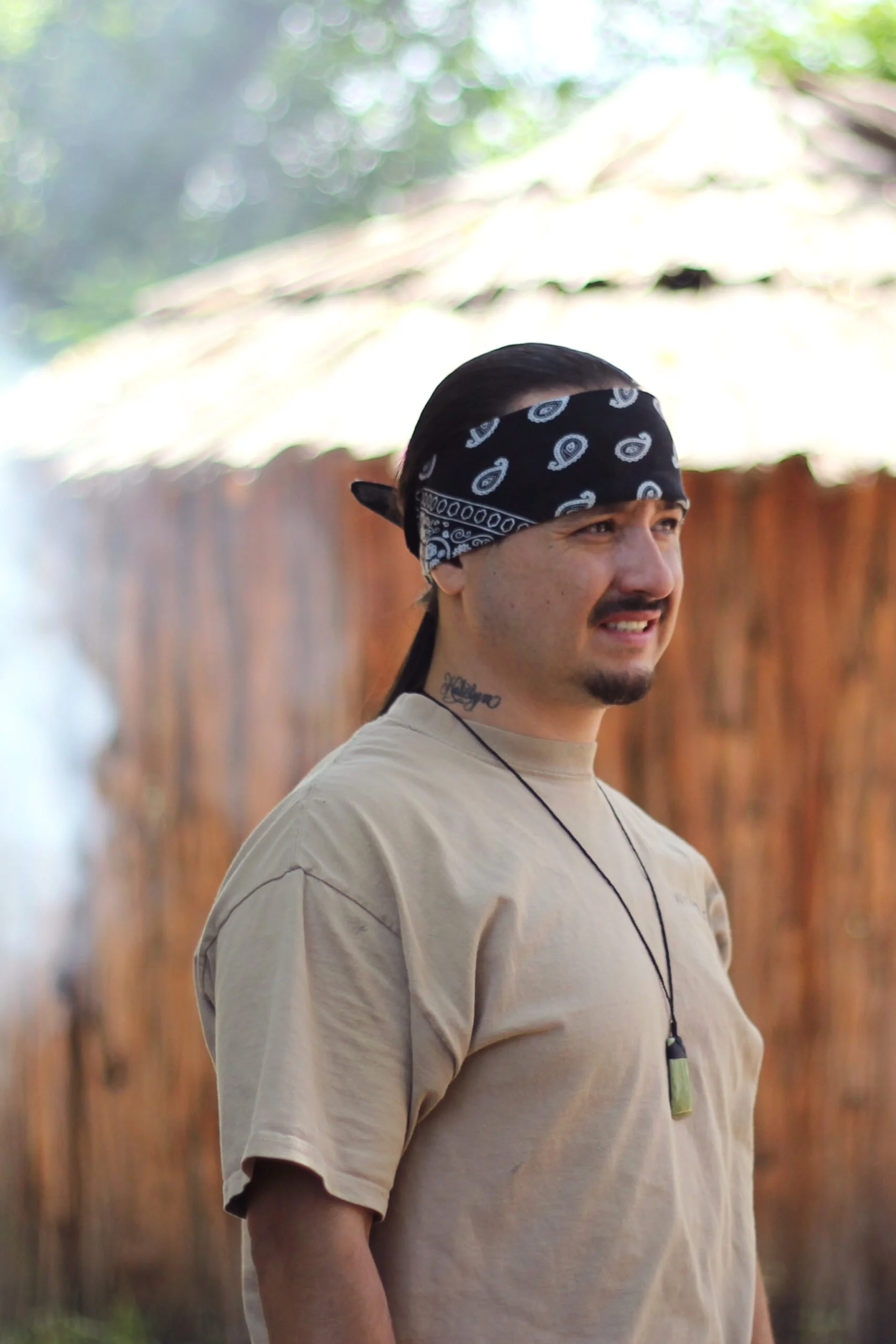
“Growing up with domestic violence and drug abuse around me, I had this anger in my heart, so I joined a gang at 13. They were like my brothers, and it was the one place where I fit in. I was also almost killed many times, and I’ve watched friends die. It was only when I had my first child, my daughter, when I was 16 that I had something to live for. Now I educate young people that gangs aren’t something you want to experience.”
Listen to Junior talk about his harrowing experiences with gangs.
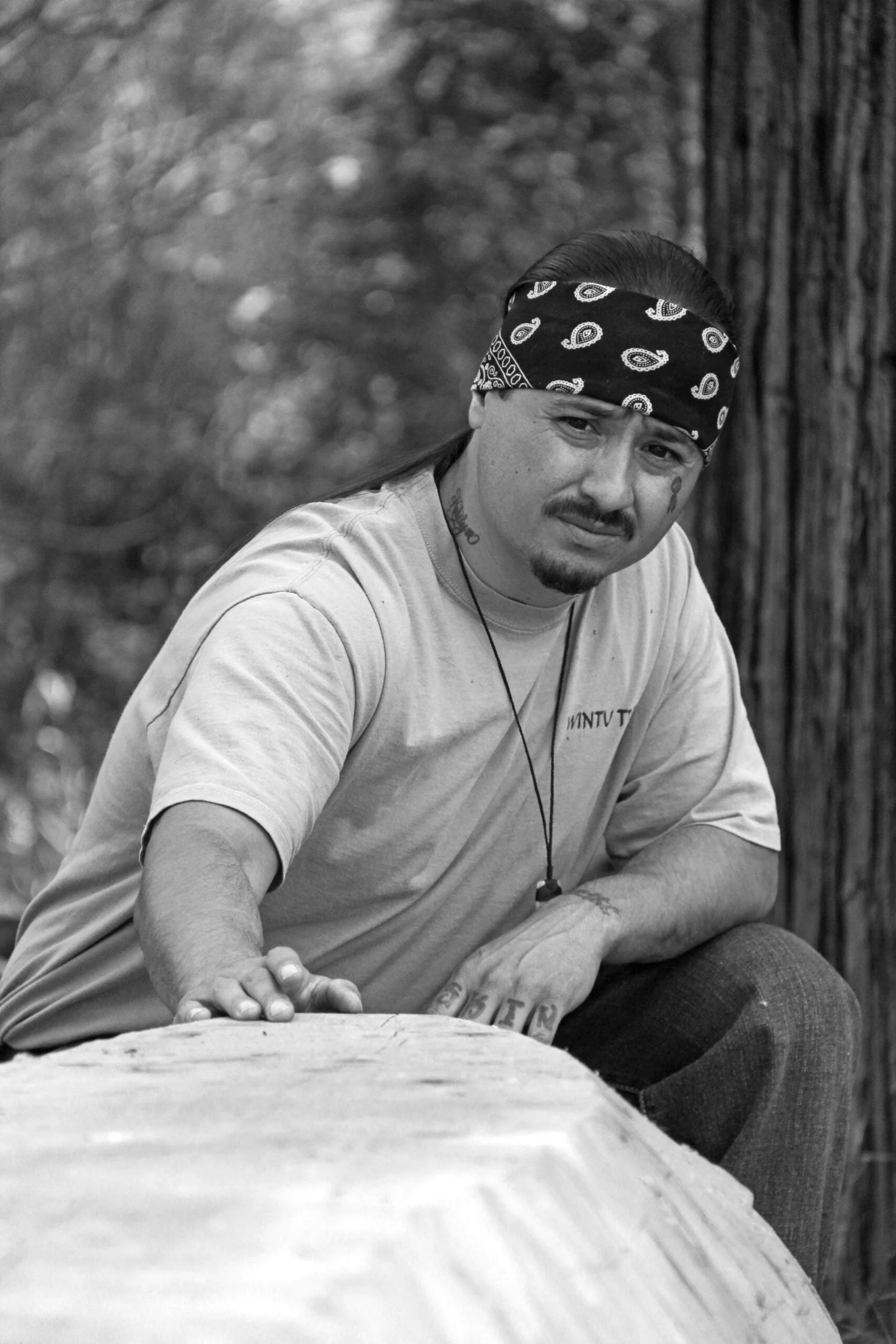
“Some of my struggles began with the effects of Indian Boarding schools on my family. The schools took the Indian people away from their land, from their ways and from their languages, and what made them healthy was replaced with abuse. Many Indians came back from boarding schools as abusive or sick. In my family, I think it led to a lot of alcohol abuse. It was a vicious cycle that couldn’t end until my mom and I learned the history together.”
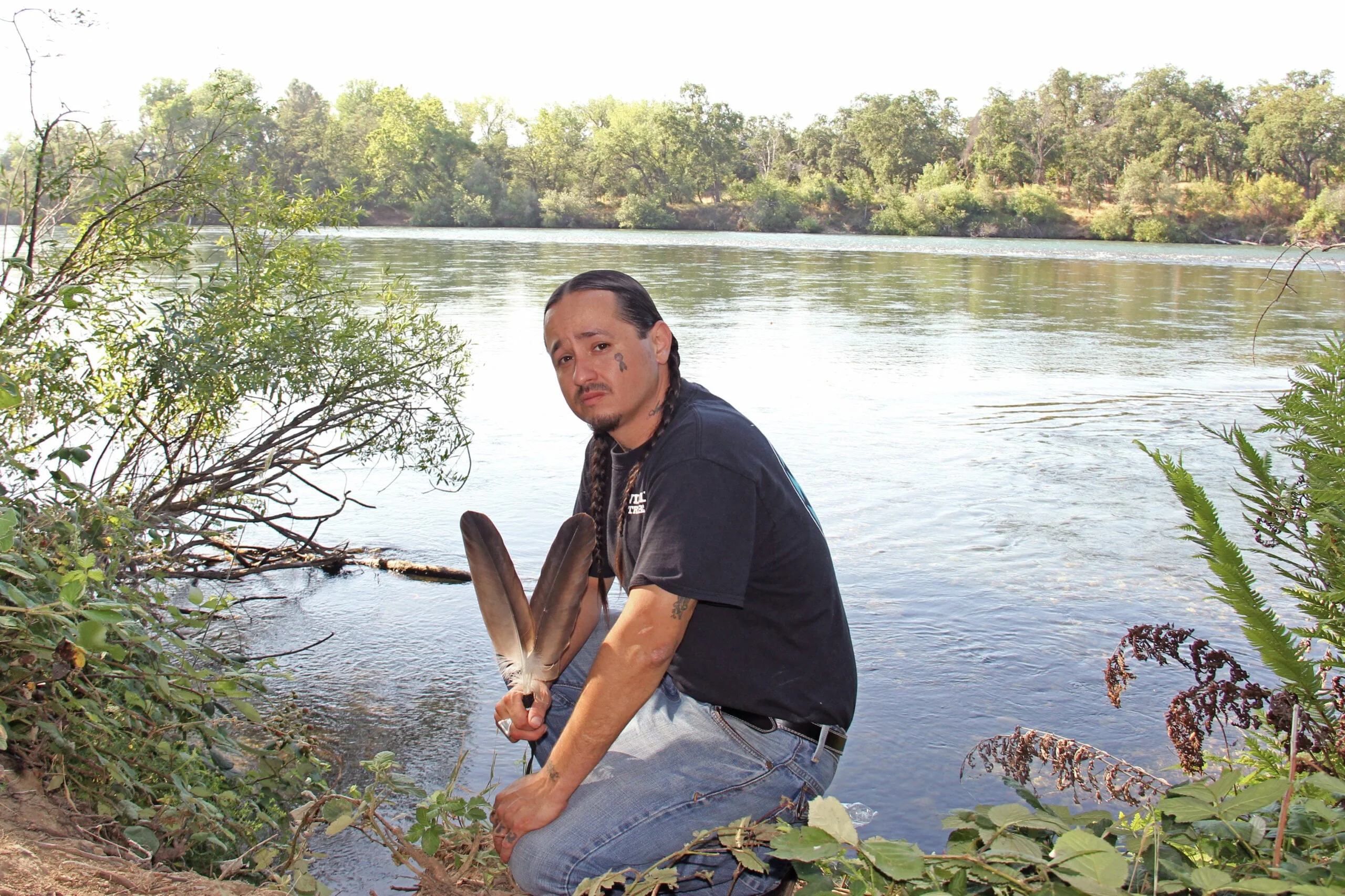
“In Shasta Lake, my life was saved by two elders I met. Art Garcia took me to my first sweat lodge at his house, and a lot of good things in my life begin with him. Later, another elder Radley Davis invited me to dance for the first time at the Feather Dance in Pit River tribal territory. To put on that regalia was like going back in time. It was life changing.”
“Once you become a dancer, there’s no turning back. You’re committing to living a certain way. I used to think being Indian meant being the wildest and craziest, but now I know it’s about striving to be a good person, husband and father and to give back to the people. Many people don’t understand there is so much beauty and knowledge in our cultures.”
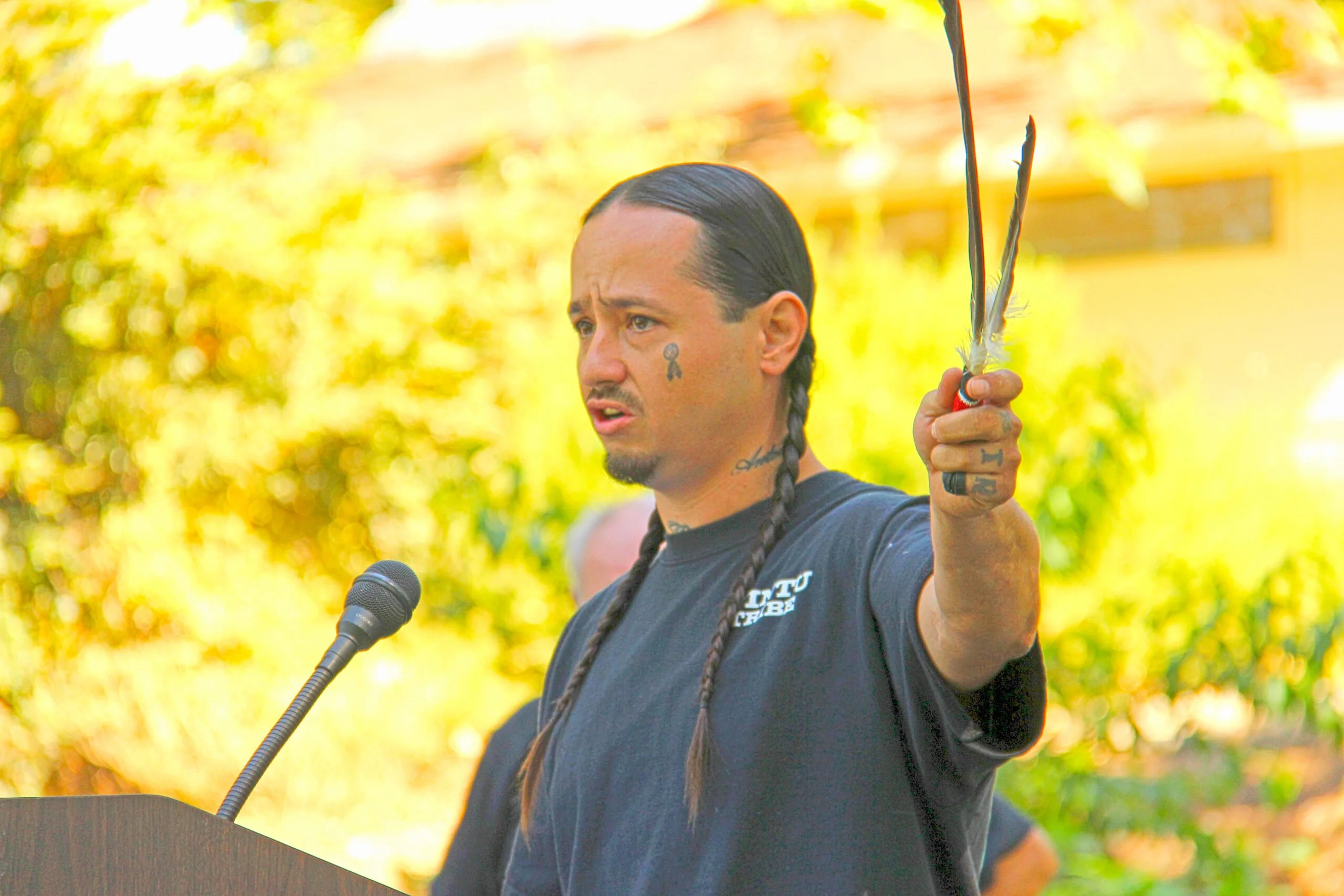
“Today, I struggle sometimes with anxiety, but I have tools to deal with it. I’ll go to sweat or I’ll sing a song to myself. I’m also the Vice Chair for the Wintu Tribe, and I lead the White Bison program, 12 steps for Native Americans, and a nutrition class. I want to see our people thrive. We all suffer as human beings. Mental illness doesn’t care what race you are. But if we have compassion, we can help each other be better people and make the right decisions.”
Listen to Junior share about his journey with anxiety.

© Copyright 2021 – Stand Against Stigma – All rights reserved. | Websites By: prime42